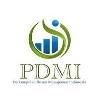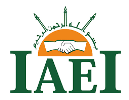E-Commerce Trade in The Perspective of Islamic Economy
Abstract
This research was conducted to meet the degree requirement of the graduate school program that addresses zakat of e-commerce trading platforms from the Islamic economy perspective. Zakat is the third pillar of Islam and is compulsory for every sane Muslim who has attained Nasab and khaul. There have been many significant changes to the Islamic law to adjust to the current circumstances, one of which is trading activities, which apply the newly built system of technological development using e-commerce. E-Commerce is an online-based trading system using a digital system of the internet and social media to be operated through a computer or gadget. On this account, there are not many studies to discuss zakat of e-commerce trading in the Islamic Economy and the Zakat Nisab of traders who use e-commerce trade. Based on the analysis, several contemporary jurisprudents address this issue, Yusuf Qhardawi, Sayyid Sabiq, and Wahbah Az-Zuhaili. Their arguments are based on some of the most accurate opinions agreed upon by the previous figures. In their view, e-commerce is part of the trade. The only difference lies in the system, although its function remains the same. Therefore, online traders must distribute their zakat funds directly to zakat institutions to accurately calculate how much to pay for the trade zakat. Based on the Islamic reference, it is said that e-commerce is part of the trading system that is used for business. Thus, all economic things that can be taken advantage of shall meet the applicable regulation of trade zakat. On this basis, there are great opportunities for zakat institutions to charge e-commerce traders with trade zakat based on Islamic law.
Keywords: E-Commerce, islamic economicsFull Text:
PDFReferences
Hafidhuddin, D. Zakat Dalam Perekonomian Modern. Jakarta: Gema Insani. 2004
Shiddieqy, T. M. Pedoman Zakat. Semarang: Pt Pustaka Rizki Putra. 1999.
Krippendoff, K. Analisis Isi: Pengertian Teori dan Metodologi (ahli Bahasa Farid Wajidi).
Jakarta: PT. Raja Grafindo Persada. 1980.
Kansil, C., & Cristine. Pokok-Pokok Pengetahuan Hukum Dagang Indonesia. Jakarta: Sinar Grafika. 2010.
Islam, P. P. Ekonomi Islam. Jakarta: Raja Grafindo Persada. 2008.
Guntara, D., Irwan, M., Nasution, P., & Nasution, A. B. N. (2020). Implementasi Metode Economic Order Quantity Pada Aplikasi. 13
Rochim, A. Panduan ZISWAF (Zakat, Infak, Sedekah dan Wakaf) Praktis. Yogyakarta: Yayasan Dompet Dhuafa Republika. 2014.
Ridho, A. Analisis Efisiensi Keuangan Badab Amil Zakat Nasional. Yogyakarta: Tesis- Program PascaSarjana UIN Sunan Kalijaga. 2014.
Pradana, M. Klasifikasi Jenis-Jenis Bisnis E-Commerce Di Indonesia. Jurnal Neo Bis, 32- 40. 2015.
Badruddin, M., & Razak, n. B. Reolintas Tentang Zakat perniagaan:Pengalaman Malaysia.
Media Syariah, 227-241. 2011.
Mughniyah, M. J. Fiqih Lima Mazhab Ja'fari, Hanafi, Maliki Syafi'i dan Hambal. Jakarta: Lentera. 2001.
Sabiq, S. Fiqih Sunnah. Jakarta: Pena Ilmu Dan Amal. 2012.
Sofian, S. Penerapan Sistem Informasi E-Commarce Berbasis Web (Stuid Kasus Untuk Vendor Pernikahan). JITEKH, 52-57. 2017.
Ikhwan, A. (2018). a Novelty of Data Mining for Fp-Growth Algorithm. 9(7), 1660–1669.
DOI: http://dx.doi.org/10.30829/jombi.v2i2.9425
Refbacks
- There are currently no refbacks.
Copyright (c) 2021 Nurbaiti Nurbaiti, Siti Aisyah, Tri Inda Fadhila Rahma, Nur Ahmadi Bi Rahmani, Muhammad Ikhsan Harahap







